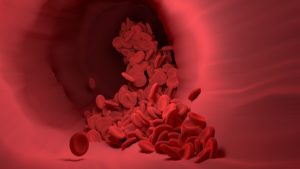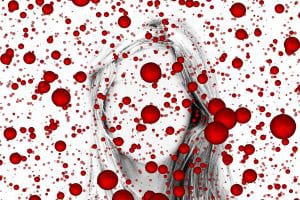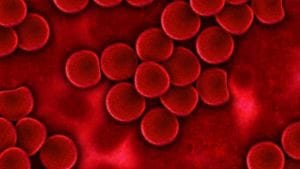Paroxysmal Nocturnal Hemoglobinuria (PNH)
What is paroxysmal nocturnal hemoglobinuria (PNH)?
Paroxysmal nocturnal hemoglobinuria (PNH) is an acquired hematopoietic stem cell disorder that affects all three types of blood cells: red, white and platelets. The disease can be fatal, with those surviving approximately 10 years after diagnosis. For more mild cases, individuals can survive decades after being diagnosed.
PNH destroys red blood cells and causes abnormalities in platelets. It can occur at any time, to men and women equally, and up to 30% of cases are a result of aplastic anemia treatment. The approximate median age of diagnosis is 35-40, and it affects one to two people per million.
What are the symptoms of paroxysmal nocturnal hemoglobinuria?
PNH symptoms are:
- Red blood cell destruction
- Dark or bloody urine
- Fatigue
- Increased heart rate
- Chest pain
- Headache
- Difficulty breathing
- Abdomen contractions
- Difficulty swallowing
- Sexual dysfunction (men)
- Kidney disease
What causes paroxysmal nocturnal hemoglobinuria?
PNH is caused by a mutation in the PIGA gene which eventually creates “PNH” cells that rapidly multiply. The idea is that the immune system attacks the stem cells, and the PNH cells survive while healthy cells die. The reason for the mutation to rapidly multiply is not known. Additionally, the PIGA gene mutation is not inherited; rather it is acquired sporadically, for unknown reasons.
How is paroxysmal nocturnal hemoglobinuria diagnosed?
PNH is diagnosed through:
- Flow cytometry (identifies PNH cells)
- Sugar water test
- Ham test
What are the treatments for paroxysmal nocturnal hemoglobinuria?
PNH treatments include:
- Folic acid and supplements to increase red blood cell production
- Prednisone
- Thrombolytic therapy
- Anticoagulation drugs
- Bone marrow transplantation
Where can I find out more about paroxysmal nocturnal hemoglobinuria (PNH)?
Paroxysmal Nocturnal Hemoglobinuria (PNH) Articles


Ruxoprubart Granted Orphan Drug Designation for Paroxysmal Nocturnal Hemoglobinuria (PNH)



Study: Risk Factors for Paroxysmal Nocturnal Hemoglobinuria Thromboembolic Events

FACIT-Fatigue Scale: A 5-Point Change is Important for Paroxysmal Nocturnal Hemoglobinuria








